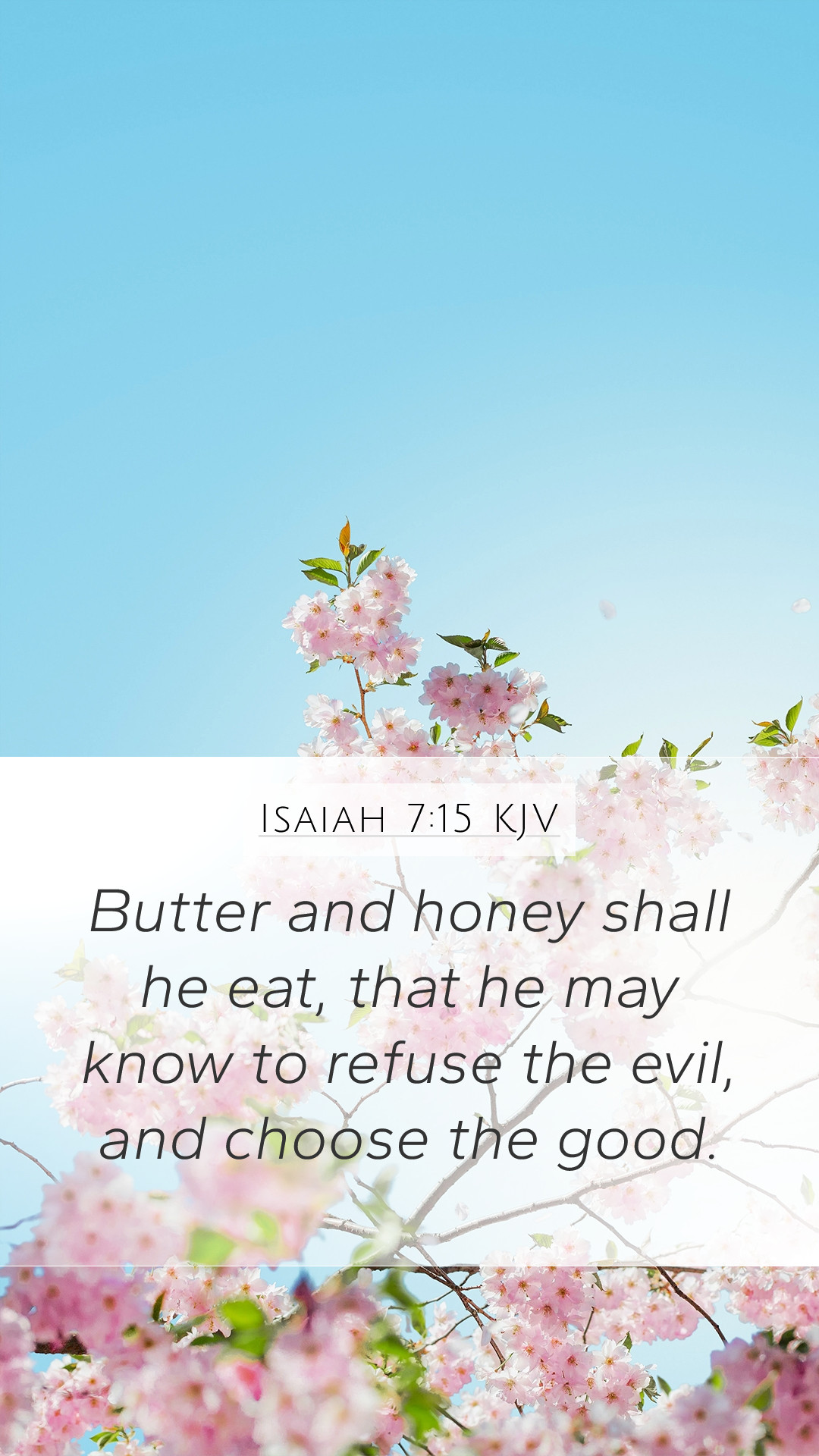Understanding Isaiah 7:15 - A Deep Dive into the Verse
Isaiah 7:15 states: "Butter and honey shall he eat, that he may know to refuse the evil, and choose the good." This verse carries significant theological weight and offers deep insights into the nature of God’s guidance through the life of young children, particularly in the context of divine prophecy regarding the Messiah.
General Overview
This scripture is a part of the prophetic text from Isaiah, where the prophet speaks concerning the political turmoil Israel faced during the Syro-Ephraimite War. The promise embedded within this verse is not merely a prediction of food but also an indication of spiritual maturity and discernment that comes through basic sustenance.
Commentary Insights
-
Matthew Henry emphasizes the nurturing aspect of the "butter and honey" as symbolic of the comforts and blessings God provides His people. He interprets it as the essential food, signifying simple yet nourishing sustenance that is required for growth—which leads to understanding good and evil.
-
Albert Barnes notes that the phrase indicates a time of peace and tranquility when a child can enjoy basic foods, pointing to the age when the child can start to make moral choices. He asserts that this period promotes the ability to choose good over evil and reflects God's grace in fostering discernment.
-
Adam Clarke expands on the significance of the couplet, suggesting that consuming food fit for a child highlights innocence and the process of learning through experience—essentially telling us that as the child grows in understanding, he gains the wisdom to make righteous decisions.
Biblical Context
The context for this verse dovetails into the broader themes of prophecy, the promise of the coming Messiah, and the divine assurance God offers to His people. Isaiah's declarations serve as a pivotal theological framework from which we may draw deeper understanding of God's redemptive plan.
Related Themes and Applications
From this verse, we can derive several themes relevant both in the historical context of Israel and in contemporary life:
- Divine Providence: The promise that God provides what is necessary for spiritual and moral development.
- Spiritual Growth: Emphasizing the importance of progressing from basic faith to the maturity required for discernment.
- Moral Choices: The critical nature of choosing between good and evil, a theme reiterated throughout Scripture.
Application for Modern Believers
This verse teaches modern believers about the simple yet profound ways God nurtures faith. The process of feeding on the Word of God is essential for spiritual growth and moral clarity in a world filled with choices.
Cross References
- Hebrews 5:14: Discusses the maturity of believers in perceiving good from evil.
- Proverbs 1:7: The fear of the Lord is the beginning of knowledge and wisdom.
- Matthew 18:3: Emphasizes the need for believers to become like little children to enter the kingdom of heaven.
Conclusion
Isaiah 7:15 is a powerful reminder of God’s intimate provision in our lives, facilitating our journey toward spiritual maturity. Understanding this verse in light of public domain commentaries enhances our insight into the richness of God's Word and the vital importance of developing the capacity to choose righteousness in our lives.


